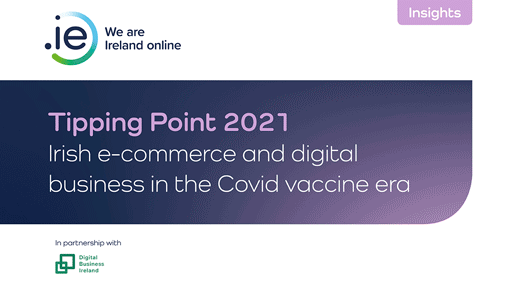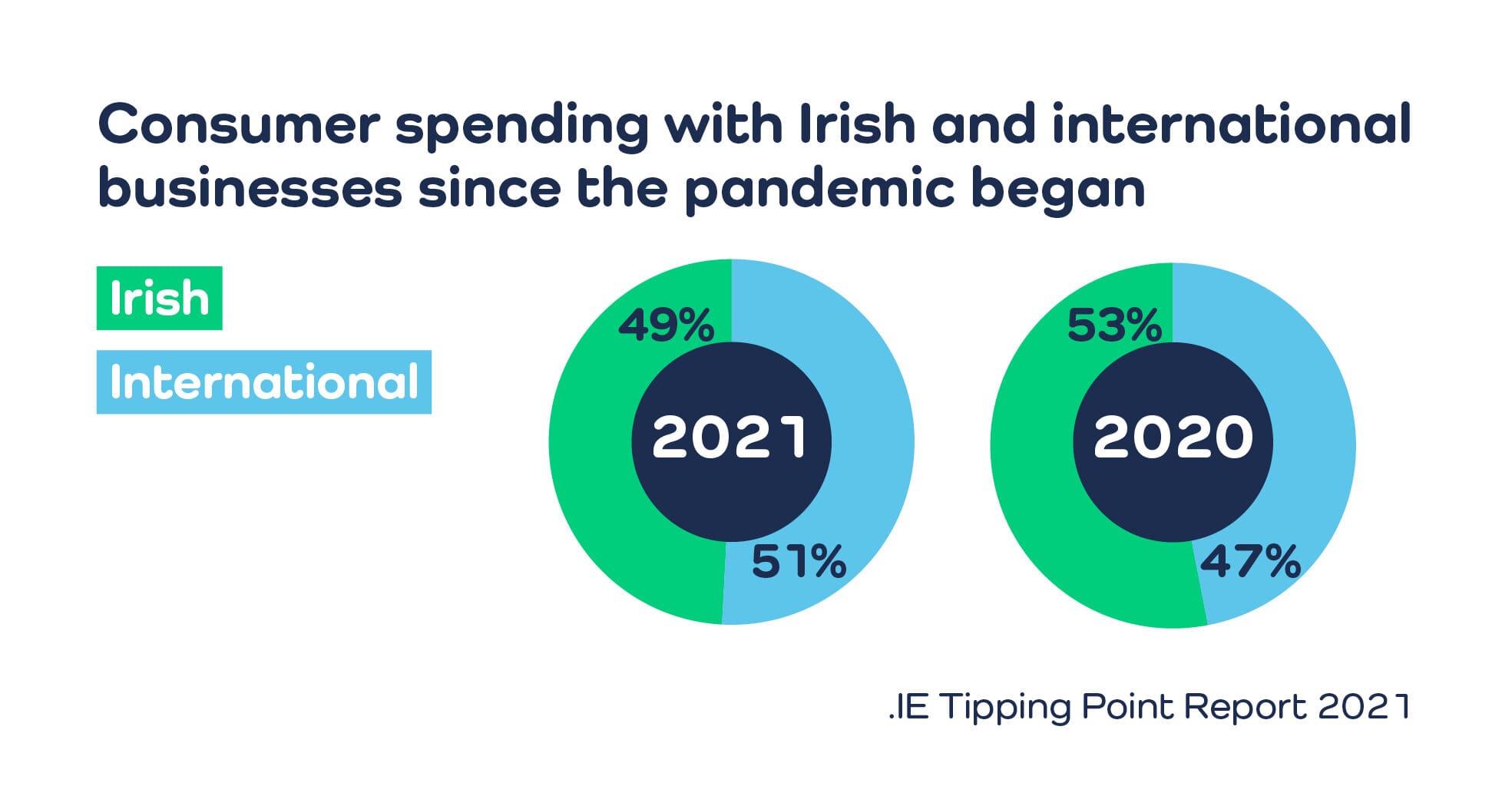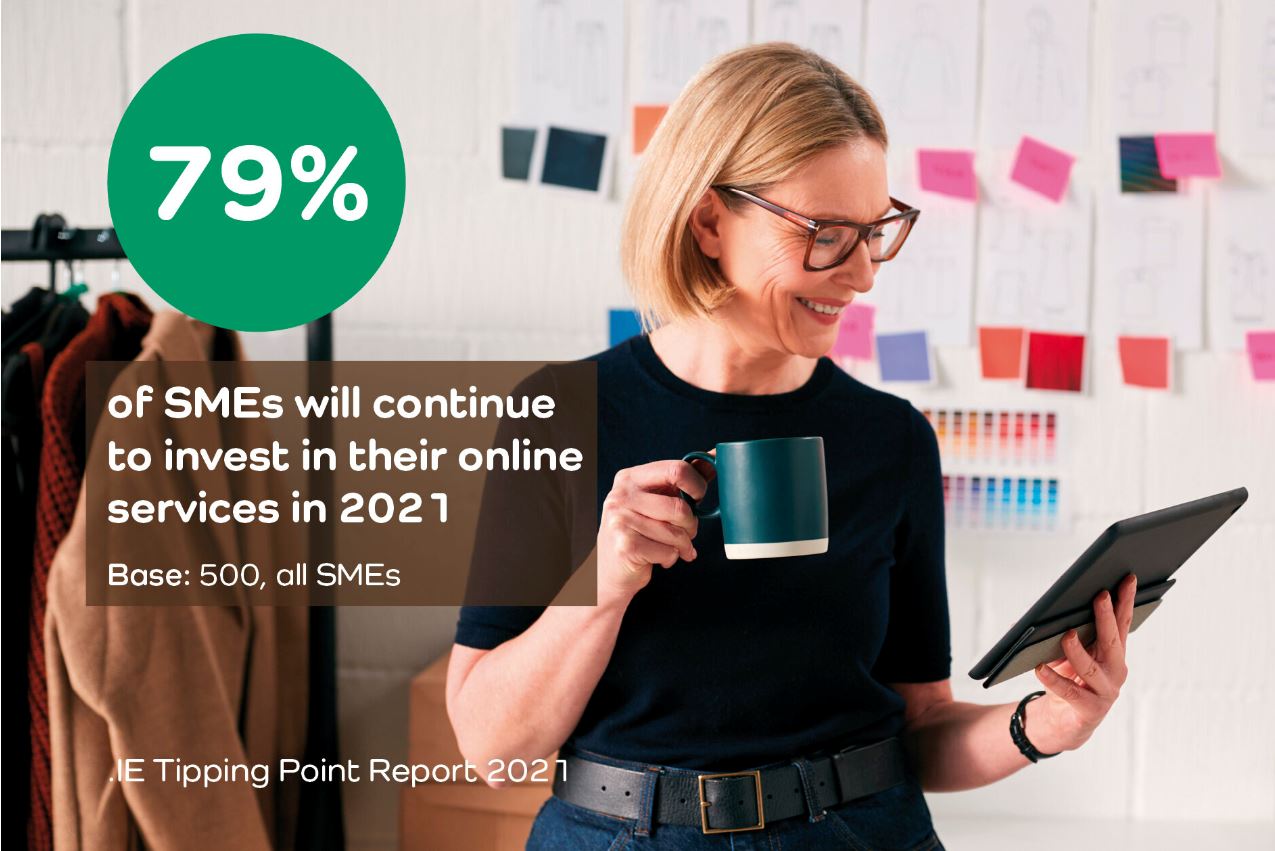71% of consumers won’t feel comfortable shopping on the high street until Covid is better controlled
Nearly three-quarters of consumers say they will not feel comfortable shopping on their local high street until a number of conditions are met.
Our .IE Tipping Point Report 2021, ‘Irish e-commerce and digital business in the Covid vaccine era’, in partnership with Digital Business Ireland is the second in a series of reports analysing consumer and SME behaviour and attitudes since the pandemic.
The vaccine era but no return to normal
Just 23% of consumers are currently fully comfortable shopping on their local high street. 28% will not feel comfortable until Covid cases are much lower than they are now and 27% not until vaccines are available to the general adult population, not just at-risk groups.
16% would prefer to wait until the government declares that social distancing and masks are no longer required, while 6% say they will never feel comfortable shopping in-store on their local high street ever again.

Overall, just 45% believe that life will return close or completely to pre-Covid normality by the end of 2021. The other 55% believe that life this year will be more or less the same as life in 2020, or even more restricted.
The Covid consumer
68% of consumers reported spending more online in 2020 than they did in 2019. Looking ahead, 58% will prioritise online shopping over in-store shopping in 2021, up from 52% last year. 42% of consumers said they will do most of their shopping in bricks-and-mortar stores this year, down from 48% in 2020.
Among consumers who say they will do most of their shopping in physical stores in 2021, 61% said it is more convenient. 39% said they will shop mostly in physical stores because it is a chance for social interaction and to go outside; interestingly, this figure has dropped from 55% in 2020, presumably as cases have increased since Christmas.
For those consumers who said they would do most of their shopping online, social interaction had the exact opposite effect: 66% said shopping online is safer and means less social interaction. 52% say it is more convenient and 46% say it saves them time.
The .IE Tipping Point Report 2020, published last summer, showed that 53% of consumers reported doing the majority of their online shopping with Irish SMEs since the start of the pandemic, compared to 47% from international retailers.
The 2021 report shows that this figure has now swung back to international retailers: 49% now say they have done the majority of their shopping with Irish SMEs since the start of the pandemic, 51% with international retailers.
“Irish consumers want to support local businesses through a difficult period, but SMEs can’t expect that goodwill to last forever. A stable, long-term e-commerce strategy cannot be built on crisis solidarity alone,” said David Curtin, Chief Executive, .IE.

Irish SMEs have unique, competitive advantages namely trustworthiness, reliability and delivery speed. SMEs need to focus on these factors and on honing the customer experience online and off.
The Covid SME
Almost a third (30%) of SMEs now claim to sell a product online in some way (either through a website or third-party platform), up from 25% in 2020. Almost 9 in 10 of that group say they have noticed an increase in their online sales numbers since the Covid pandemic began.
The number of SMEs that have invested in their online presence has increased dramatically since last year. Now more than half (55%, up from 21% in 2020) claim to have spent money on improving their digital platforms, with most either launching or improving their website. 78% of SMEs say that they are busier than or as busy as before the pandemic because of their online investment, up from 46% in 2020.
61% of SMEs say their online services will be more important to their business in 2021 than they were in 2020, and 79% will continue to invest in them this year. It is clear that a greater number of Irish businesses accept that their business model is likely to be permanently changed by the pandemic.

“A growing number of Irish SMEs recognise that having an online presence is absolutely crucial to their business’s survival. Compared to last year, more businesses anticipate that consumers will spend online as well as offline, and that fewer will do most of their shopping in bricks-and-mortar stores. This knowledge of consumer trends is positive news for these businesses and for the Irish economy overall,” said Mr Curtin.
Further insight
David Curtin said it was crucial that local and national decision-makers consider shifts in consumer and SME behaviour during the pandemic when planning digital policy for the country’s post-Covid economy.
The pandemic is a continuum, not a standalone event. Shifts in consumer and SME behaviour are still occurring, some now at a faster rate, others slower. From a digital perspective, it is clear that the pandemic is having an accelerant effect.
“Behaviours and ways of working that boost sales, cut costs, or increase convenience are likely to become permanently ingrained. Policymakers must consider these factors if their digital development plans are to be effective in the Covid vaccine and post-Covid eras.”
Lorraine Higgins, Secretary General of Digital Business Ireland, a .IE Tipping Point report partner, said: “Unquestionably, the future of business is ‘omni-channel’, with a physical and digital footprint. It is important to stress that these concepts are not mutually exclusive; what’s bad for one permeates the other. Therefore, adequate policy responses are needed to ensure a robust shopping landscape where online and bricks-and-mortar co-exist.”
For further information, visit our .IE Tipping Point page where you can download the full report.
Naomi Temple is our Marketing Specialist working within our corporate communications team.